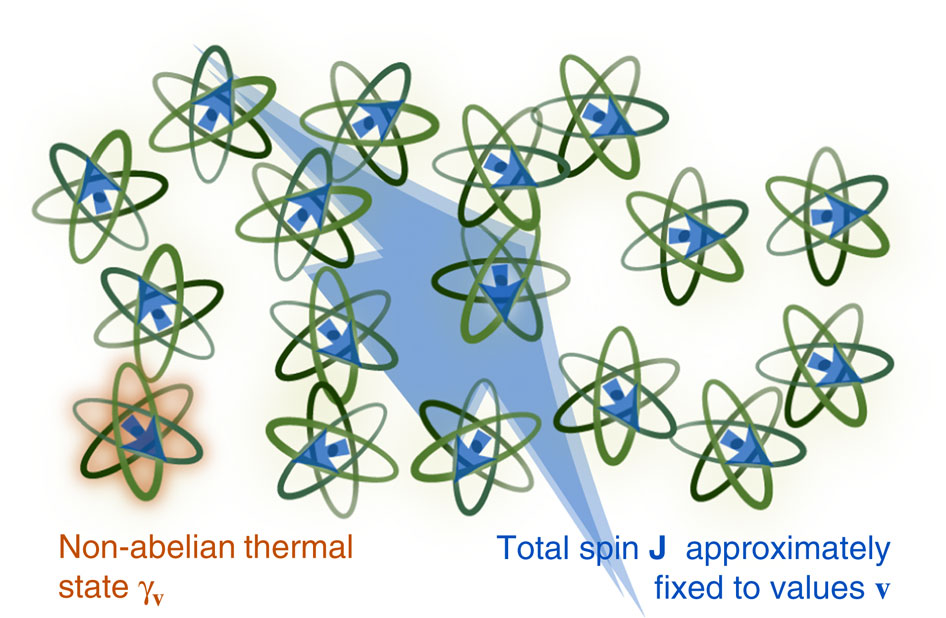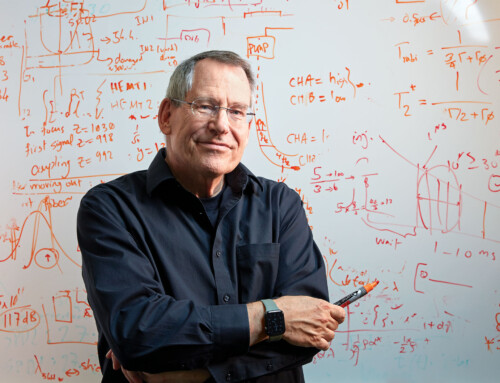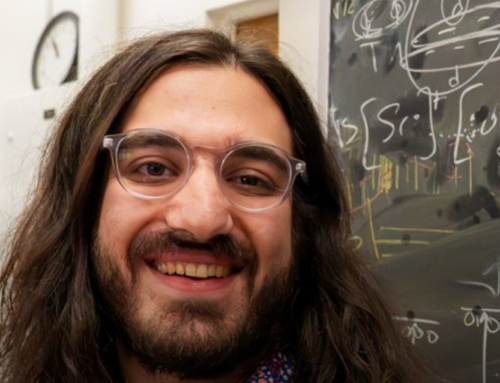 Recently reignited interest in quantum thermodynamics has prompted information-theoretic approaches to fundamental questions, including the roles of entanglement, measurement, and noncommutation. A central concept in statistical mechanics is the thermal state. The thermal state of a system that exchanges heat with a bath, or heat and particles, or other commuting observables, is well-known. But quantum systems can exchange observables that fail to commute with each other. Do such systems have thermal states? What form do such thermal states have?
Recently reignited interest in quantum thermodynamics has prompted information-theoretic approaches to fundamental questions, including the roles of entanglement, measurement, and noncommutation. A central concept in statistical mechanics is the thermal state. The thermal state of a system that exchanges heat with a bath, or heat and particles, or other commuting observables, is well-known. But quantum systems can exchange observables that fail to commute with each other. Do such systems have thermal states? What form do such thermal states have?
In Nature Communications, IQIM graduate student Nicole Yunger Halpern and collaborators investigate this thermal state from three perspectives. First, they generalize the microcanonical ensemble to an approximate microcanonical ensemble. This approximation allows for noncommutation. If the ensemble characterizes the system-and-bath composite, tracing out the bath yields the system’s thermal state. This state is expected to be the equilibrium point, they argue next, of typical dynamics. Finally, they define a resource-theory model for thermodynamic exchanges of noncommuting observables. Complete passivity—the inability to extract work from equilibrium states—implies the thermal state’s form, too. This work opens new avenues into equilibrium in the presence of quantum noncommutation.
Read the full article: “Microcanonical and resource-theoretic derivations of the thermal state of a quantum system with noncommuting charges,” by Nicole Yunger Halpern, Philippe Faist, Jonathan Oppenheim, and Andreas Winter, Nature Communications 7, Article number: 12051 doi:10.1038/ncomms12051. Published 07 July 2016.



